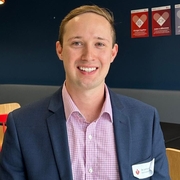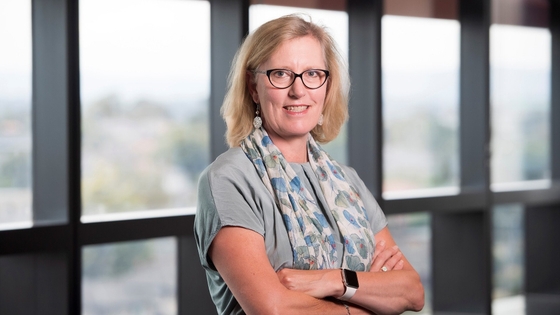
Q&A with Dr Lachlan Dalli
Real-world effectiveness of medicines and vaccines for stroke prevention
Dr Lachlan Dalli is a Research Fellow at the Big Data, Epidemiology and Prevention Division (Stroke and Ageing Research) at Monash University and a Heart Foundation Postdoctoral Fellow (2024 – 2025).
Dr Lachlan Dalli’s research is using Big Data to uncover how medicines and vaccines can be optimised in the real world to prevent stroke.
His work will generate evidence on how these treatments reduce stroke risk in everyday life and among diverse communities.
What are you currently researching?
My two-year fellowship focuses on leading new and innovative projects using Big Data to understand the real-world safety and effectiveness of medicines and vaccines for stroke prevention. My research has three main themes:
- Complementary medicines: Investigating the usage and effectiveness of over-the-counter medicines, supplements and vitamins for stroke prevention.
- Prescription medicines: Analysing global trends and disparities in the use of cardiovascular medicines.
- Vaccines: Examining the impact of vaccines (such as influenza, COVID-19 and herpes zoster) on both short- and long-term stroke risks.
What difference will your research make to people’s cardiovascular health in Australia?
Cardiovascular disease is the leading cause of death in Australia, yet most strokes and heart attacks are preventable.1, 2 While lifestyle changes are necessary, medications have greatly advanced heart disease and stroke prevention. However, clinical trials often don’t fully represent the diverse population they aim to help.
My research aims to bridge this gap by studing how medicines and vaccines are used in the real world to prevent stroke. By providing evidence on their effectiveness, I aim to show how these treatments can reduce the risk of stroke in everyday life, and among diverse groups of people.
What motivated you to do your research?
After six years working in stroke research, I have witnessed the devastating impact that stroke has on patients and their families. Despite advances in acute treatments, stroke remains a life-threatening event, and every opportunity must be taken to prevent a stroke before it occurs.

I am motivated to produce real-world evidence to improve our understanding of how medicines and vaccines can be optimised at a population-level to prevent stroke. My goal is to build confidence among people, healthcare professionals, and policymakers in using these medicines and vaccines effectively to fight stroke.
Dr Lachlan Dalli
Research Fellow
Are there any achievements or discoveries from the past year you can share with us?
Earlier last year, I completed a landmark study investigating the real-world effectiveness of blood-pressure lowering medications in preventing recurrent vascular events and serious falls after stroke. Although the causes of medication non-adherence are complex and multi-factorial, clinicians and patients often report discontinuing blood-pressure lowering medications due to fears of falling. This study provides real-world evidence from >4,000 survivors of stroke to support continued adherence to these medications to prevent recurrent vascular events and also serious falls.3
What role has Heart Foundation funding had in your career journey?
This Heart Foundation funding is very important for my research career. This Postdoctoral Fellowship will help me start my own research projects and work with new partners in Australia and with international collaborators. It will allow me to grow as a research leader and dedicate my time to conducting and leading cutting-edge research to prevent stroke using Big Data.
Do you have a message for Heart Foundation supporters?
A huge thank you to everyone who has donated to the Heart Foundation! Your support makes my research possible. I feel honoured to work on this important research to help prevent strokes in Australia.
References
- ABS. Causes of Death, Australia (2022). Australian Bureau of Statistics,. Available at: https://www.abs.gov.au/statistics/health/causes-death/causes-death-australia/latest-release. Accessed 17 Sep 2024.
- WHO. Cardiovascular diseases. The World Health Organization,. Available at: https://www.who.int/europe/news-room/fact-sheets/item/cardiovascular-diseases. Accessed 17 Sep 2024.
- Dalli LL, Olaiya MT, Kim J, et al. Antihypertensive Medication Adherence and the Risk of Vascular Events and Falls After Stroke: A Real-World Effectiveness Study Using Linked Registry Data. Hypertension. Jan 2023;80(1):182-191.
You might also be interested in...

Q&A with Professor Seana Gall
Professor Seana Gall, cardiovascular epidemiologist at the University of Tasmania, focuses on preventing heart disease and stroke through innovative research.

Q&A with Associate Professor Monique Kilkenny
Using big data to improve stroke monitoring, care and outcomes

Improving stroke outcomes through evidence based rehabilitation
Professor Natasha Lannin, Monash University
Last updated09 January 2026
